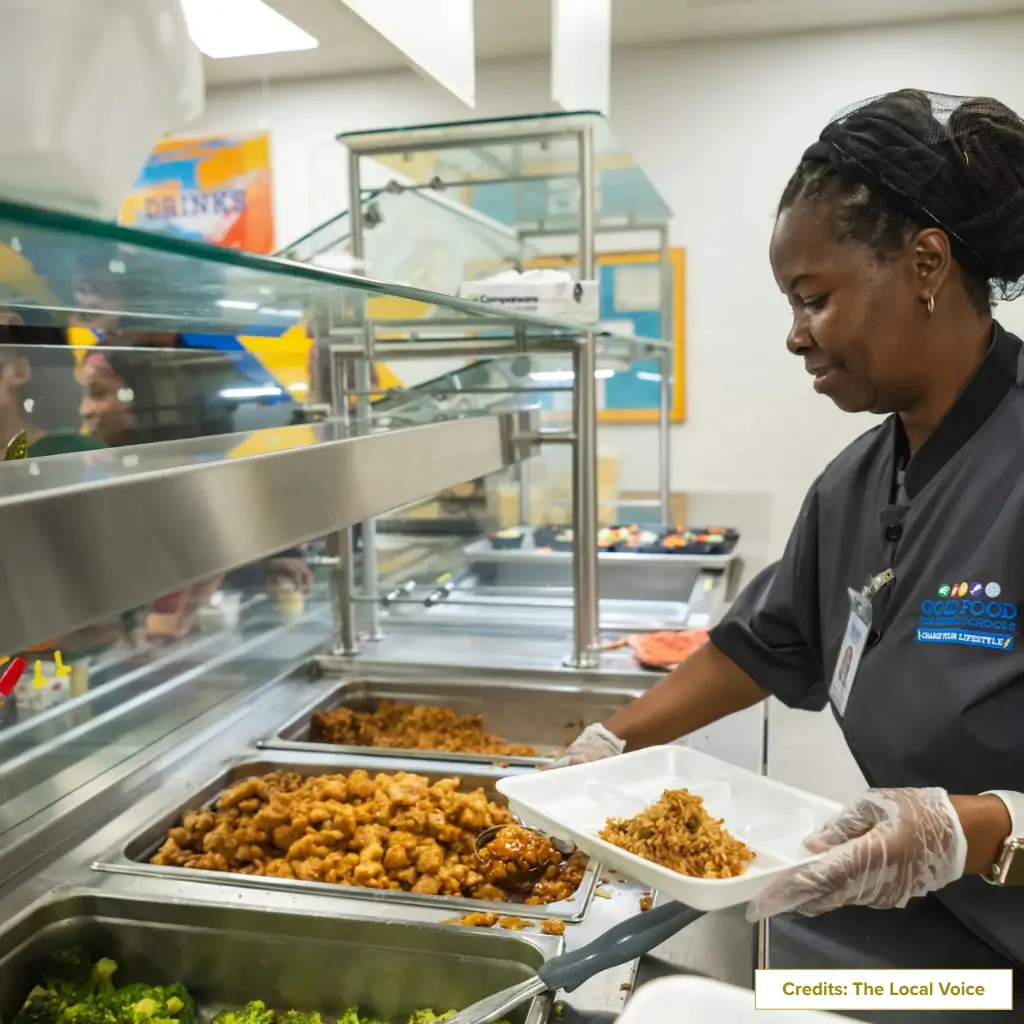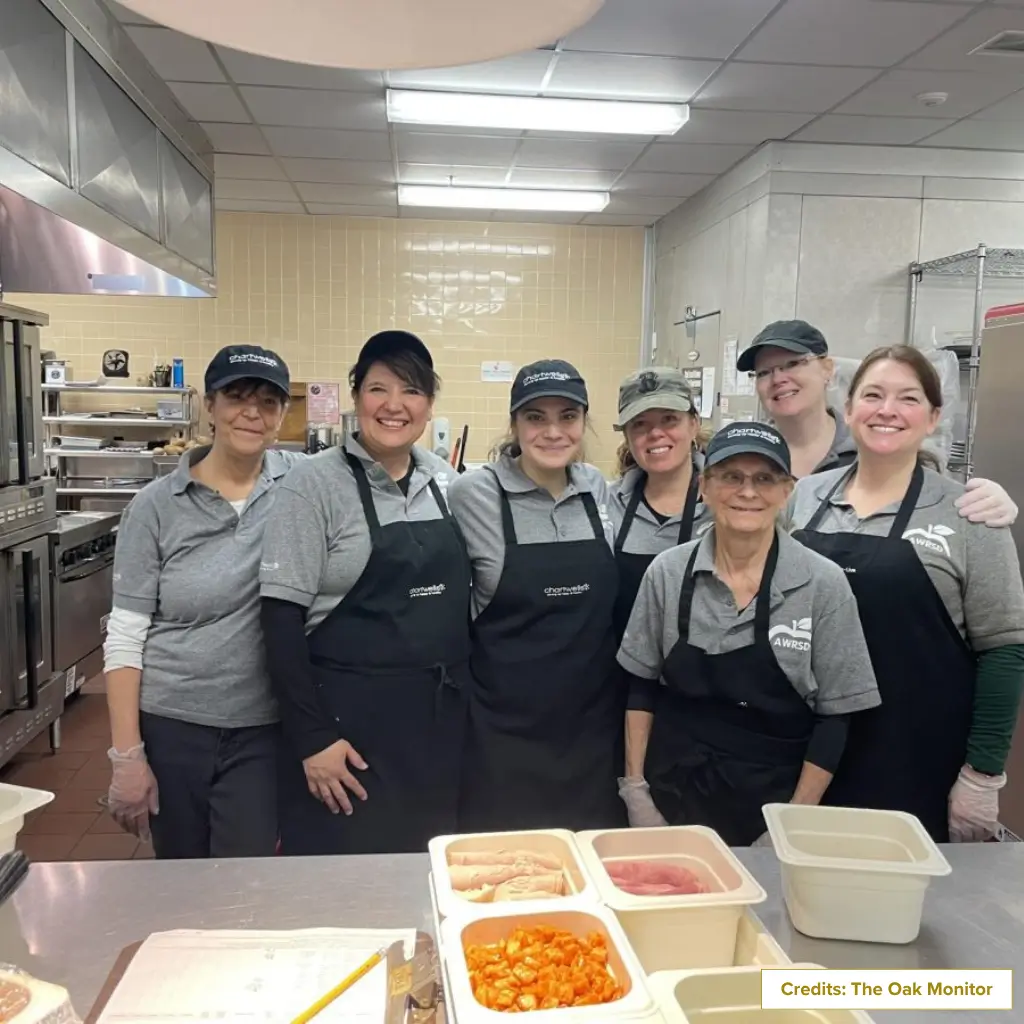Introduction
When most people think about cafeteria training, they picture food safety, portion control, or kitchen organization lessons. But another ingredient to cafeteria success that rarely makes it into the handbook: mental health awareness.
The truth is, if you want to organize your school cafeteria so it runs smoothly and consistently, you can’t just focus on the equipment, the menu, or the schedule—you also need to address the mental resilience and emotional support of the people behind the counter.
This guide explores why mental health awareness should be a cornerstone of cafeteria staff training, the unique challenges these workers face, and how mental wellness complements traditional operational training.
Why Mental Health Awareness Matters in School Cafeteria Settings?
School cafeterias are more than food service lines—they’re social hubs, emotional crossroads, and sometimes, pressure cookers for students and staff. For cafeteria workers, these spaces demand constant multitasking: serving food, maintaining safety standards, managing time, and navigating the unpredictable world of student behaviour.

Yet despite the precise emotional demands, mental health resources for cafeteria teams remain scarce. A recent survey found that only 36% of employees across all industries have access to adequate stress management resources at work. This gap has tangible consequences for cafeteria teams—higher burnout, absenteeism, and turnover.
Mental health awareness in cafeteria settings matters because it:
- Boosts morale and retention. Staff who feel supported stay longer.
- Reduces absenteeism and prevents burnout, which keeps the kitchen running smoothly.
- Improve student interactions through calmer, more empathetic staff.
- Increase productivity by lessening stress-induced errors.
- Foster team unity through shared understanding and support.
- Encourage early intervention before problems escalate.
Thus, when schools recognize mental health as essential to cafeteria operations, they create stronger teams, better food service, and a healthier school climate.
The Unique Mental Health Challenges Faced by Cafeteria Staff
Working in a cafeteria is both physically and mentally demanding. While a 50s school cafeteria’s nostalgia photo might show smiling “lunch ladies” with trays of neatly portioned food, today’s cafeteria environment is faster, louder, and more complex.

Cafeteria staff often face:
- Time pressure: serving hundreds of students in short windows while meeting compliance standards.
- Low recognition: feeling invisible compared to teachers or administrators.
- Physical strain: standing for long periods, lifting heavy trays, and enduring hot kitchen conditions.
- Social stigma: undervaluing food service roles despite their importance.
- Workplace disrespect: rude comments or even bullying from students.
The pandemic only amplified these stressors. Many cafeteria workers reported heightened anxiety due to exposure risks and the responsibility of continuing meal programs for vulnerable students. Unfortunately, unlike teaching staff, most had no access to institutional mental health support.
The Role of Training in Addressing Mental Health Issues
Traditional cafeteria training focuses on compliance, cleanliness, and menu execution. But to effectively manage a school cafeteria, you need more than food prep skills—you need emotionally resilient staff.
According to the WHO, depression and anxiety cost the global economy over $1 trillion annually in lost productivity. Frontline service workers including cafeteria staff are especially vulnerable due to high workloads and low schedule control.

Mental health awareness training for cafeteria workers can:
- Promote emotional literacy: reducing stigma and increasing confidence in discussing mental health.
- Support early detection of issues: allowing interventions before burnout becomes severe.
- Teach communication and de-escalation skills: critical for handling conflicts with students or coworkers.
- Foster a culture of empathy: improving teamwork and morale.
- Strengthen self-care habits: encouraging regular breaks, healthy eating, and stress-reduction techniques that sustain long-term performance.
- Boost focus and attention to detail: minimize food preparation, serving, and compliance paperwork errors.
- Improve adaptability to change: when facing unexpected menu substitutions, staffing shortages, or last-minute schedule shifts.
Core Elements of a Mental Health-Focused Training Program
Here are the significant components to include in your mental health training program for your cafeteria workers:
1. Mental Health Basics
Clarify the difference between mental health and mental illness, and explain how stress can show up at work whether through mood changes, withdrawal, or irritability.
2. Self-Care Strategies
Teach simple stress-reduction techniques like box breathing or the 5-4-3-2-1 grounding method. Encourage small, in-shift habits such as hydration, brief breaks, and rotating duties.
3. Communication and De-escalation Skills
Provide training in active listening, calm tone use, and boundary setting. This is particularly useful when dealing with noise in school cafeterias, where tempers and voices may rise.

4. Peer and Supervisor Support Structures
Create buddy systems or wellness check-ins. Encourage supervisors to lead empathetically and maintain open-door policies for mental health discussions.
5. Access to Resources
Share affordable or free mental health resources, such as:
- 988 Suicide & Crisis Lifeline (call or text)
- National Alliance on Mental Illness (NAMI) support groups
- Free wellness apps like Insight Timer or Moodfit
- Local public health workshops
6. Creating a Culture of Wellness
Embed mental health into daily operations, not just a once-a-year workshop. Monthly wellness themes, small recognition programs, or a decorated school cafeteria board with positive messages can boost morale.

7. Trauma-Informed Awareness
Help staff understand the effects of trauma on mood, behavior, and focus. Emphasize that trauma is not always visible.
8. Mental Health First Aid Basics
Train select staff members to recognize signs of crisis and provide initial support until professional help is available.
9. Stress Management for High-Volume Times
Offer strategies for staying calm during rush periods such as planning, sharing workload, and having post-shift decompression routines.
How Mental Health Awareness Complements Food Safety and Service Training
At first glance, food safety and mental health awareness might seem unrelated. But they share the same ultimate goal: protecting the well-being of everyone in the cafeteria.
For instance:
- A staff member experiencing fatigue might make more mistakes with temperature logs or cross-contamination protocols.
- Someone under emotional strain may struggle to engage positively with students, affecting the cafeteria’s atmosphere.
- A supportive, mentally healthy team communicates better, coordinates more smoothly, and handles crises whether a food spill or a behavioral incident more effectively.
Just as healthy school cafeterias depend on how calm and stress-free cafeteria workers are, mentally resilient teams consistently uphold safety and service standards.
Suggested Reading 👉 The Complete Guide to Food Safety Training for School Cafeteria Staff
Benefits of Mental Health Awareness for Cafeteria Operations and Culture
When schools invest in cafeteria staff mental health, the benefits extend far beyond the serving line:
- Boosted morale: staff who feel cared for show more loyalty and positivity.
- Reduced exhaustion: keeping experienced staff means smoother service.
- Efficiency under pressure: errors decrease, service speeds up.
- Supportive school environment: staff model empathy for students.
- Willingness to grow: supportive environments encourage skill development.
- Early problem-solving: issues addressed before they escalate.
- Creative engagement: mentally well staff suggest new ideas, like themed menus or fun events.
- Shows staff they matter, which builds loyalty and pride.
- Positive ripple effect: happier staff contribute to a more uplifting atmosphere throughout the school.
- Community connection: mentally supported staff feel more comfortable engaging with parents and the wider school community.
- Enhanced food safety: clear thinking and focus reduce mistakes in food handling, resulting in improved school cafeteria food quality.

Affordable Ways to Support Staff Mental Health
Not every school has the budget for an in-house wellness program, but there are affordable ways to support staff mental health:
- Partner with local nonprofits for free workshops.
- Host mindfulness sessions led by volunteers.
- Use community college counseling interns for group support.
- Encourage peer-led wellness challenges.
- Provide a quiet break area—even a small, comfortable corner can help in a small school cafeteria, which is often a resource-limited environment.

Looking Back, Moving Forward
From the communal feel of 90s school cafeterias to today’s tech-integrated, efficiency-driven lunchrooms, one truth remains: cafeterias thrive when the people in them thrive. Whether it’s a modern school cafeteria with touchless payment systems or a charming outdoor school cafeteria with picnic tables, its people are the heart of the space.
That’s why moments like school cafeteria workers’ appreciation day are so important not as a token gesture, but as a reminder that these workers are essential to school life.
The Takeaway: People First, Always
Ultimately, mental health awareness in cafeteria staff training goes beyond wellness. It builds a sustainable, thriving space for staff and students. When you make a positive school culture that values emotional well-being alongside hygiene and safety, you create a workplace people are proud of. And when staff feel valued while working in a school cafeteria, that care flows directly to the students they serve. Ultimately, the most valuable resource isn’t the food, it’s the people.
FAQs
Why is mental health awareness critical for cafeteria staff?
It helps reduce stress, improve teamwork, and ensure consistent food service quality. Mentally healthy staff are more engaged, patient, and efficient.
Is mental health training expensive?
Not necessarily. Many free or low-cost options exist, such as local nonprofit workshops, public health resources, and wellness apps like Insight Timer.
How can schools start building mental health awareness?
Begin with simple stress management, communication, and self-care training, and make mental health discussions a regular part of staff meetings.


